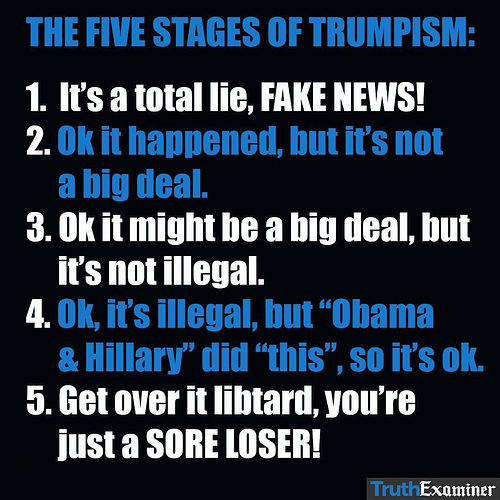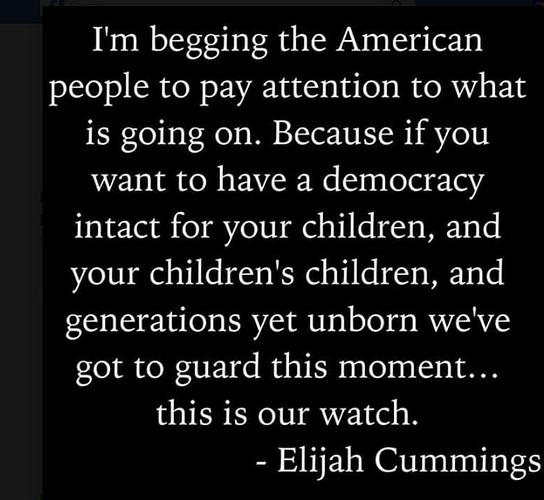But Sondland also suggests any wrongdoing was hardly systemic. In his opening statement, he painted himself and his fellow diplomats as ignorant of Giuliani’s desire to push for specific Ukraine investigations that could carry political benefits for Trump. The implication: Maybe Giuliani did something wrong, but we didn’t really know about it.
That’s extremely difficult to swallow.
Sondland says in his testimony that at a May 23 briefing at the White House, Trump directed the diplomats to work with Giuliani. He said the diplomats were faced with a disappointing choice: work through Giuliani, as Trump demanded, or risk serious harm to relations with the new Ukrainian administration led by President Volodymyr Zelensky. They chose the former, Sondland says.
Whether it was truly such a binary choice is up for debate. But then Sondland makes a big claim:
But I did not understand, until much later, that Mr. Giuliani’s agenda might have also included an effort to prompt the Ukrainians to investigate Vice President Biden or his son or to involve Ukrainians, directly or indirectly, in the President’s 2020 reelection campaign
Sondland isn’t the first to make this claim. Energy Secretary Rick Perry also told the Wall Street Journal this week that he had never heard Trump or Giuliani talk about Ukraine investigating the Bidens.
If Sondland and others were indeed ignorant of Giuliani’s intentions, though, it was apparently a willful brand of ignorance.
The reason is the timeline. In the weeks leading up to that May 23 White House briefing, Giuliani’s and even Trump’s interest in spotlighting the Bidens’ actions in Ukraine were hardly a secret. Giuliani’s, in particular, were big news.
The full Trump-Ukraine timeline
- On May 1, the New York Times reported on questions about Hunter Biden’s work in Ukraine and noted, “The Trump team’s efforts to draw attention to the Bidens’ work in Ukraine … has been led partly by Rudolph W. Giuliani.”
- By May 7, Bloomberg News cast doubton a central premise of the Times’s reporting: that then-Vice President Joe Biden’s efforts to push out Ukraine’s top prosecutor could be viewed as benefiting his son’s company.
- On May 9, Giuliani told the Times that he was traveling to Ukraine to explicitly push for two specific investigations: one involving the origins of the 2016 Russia investigation, and the other involving the Bidens. (These are the same ones that would come up on Trump’s July 25 call with Zelensky.) And Giuliani was upfront about the political nature of his trip. “There’s nothing illegal about it,” he said. “Somebody could say it’s improper. … I’m going to give them reasons they shouldn’t stop [investigating], because that information will be very, very helpful to my client and may turn out to be helpful to my government.”
- On May 11, Giuliani canceled the trip amid an outcry.
- On May 19, Trump explicitly pointed to potential wrongdoing by the Bidens. “Biden — he calls them and says, ‘Don’t you dare persecute, if you don’t fire this prosecutor’ — the prosecutor was after his son,” Trump said. “Then he said, ‘If you fire the prosecutor, you’ll be okay. And if you don’t fire the prosecutor, 'We’re not giving you $2 billion in loan guarantees,’ or whatever he was supposed to give. Can you imagine if I did that?”
So according to Sondland, despite all of that, as of May 23 he “did not understand … that Mr. Giuliani’s agenda might have also included an effort to prompt the Ukrainians to investigate Vice President Biden or his son.” He even says Giuliani mentioned the Ukrainian company that employed Hunter Biden, Burisma Holdings, in August, but “I did not know until more recent press reports that Hunter Biden was on the board of Burisma.”
Sondland’s portfolio as E.U. ambassador includes many other countries. But he acknowledges in his opening statement that Ukraine is a big one.
“My involvement in issues concerning Ukraine, while a small part of my overall portfolio, was nevertheless central to my ambassadorial responsibilities,” he said. “In this sense, Ukraine is similar to other non-E.U. countries such as Venezuela, Iran and Georgia.”
Sondland also notes that he attended Zelensky’s inauguration on May 20. So you would think he would know about such a major news story involving that country and sensitive diplomacy issues there. And if not, you’d think he might brush up or be fully debriefed by his aides after being instructed on May 23 to go outside the normal process and work with Giuliani. “ Why does the president want me to work with this specific guy?” he might ask himself. Even a cursory check would have quickly yielded the above stories.
Sondland maintains in his opening statement that he’s not there to toe anybody’s line. “Some may want me to say things to protect the president at all costs; some may want me to provide damning facts to support the other side,” he said. “But none of that matters to me. I have no interest in pursuing higher office or taking political shots. Simply put, I am NOT here to push an agenda. I am here to tell the truth.”
If it is indeed the truth that he and Perry didn’t know what Giuliani wanted from Ukraine, they should probably adjust how they consume the information necessary for their jobs.






 )
)